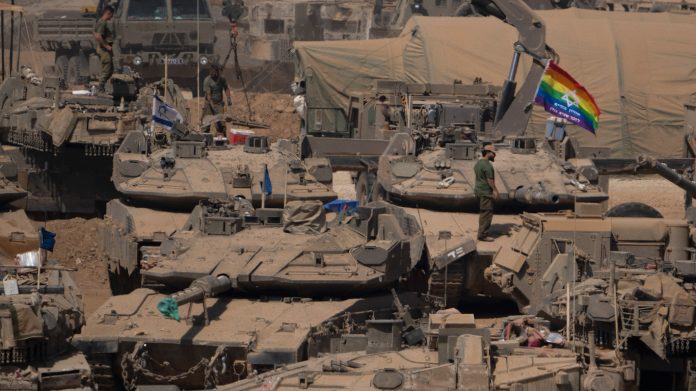As Israeli leaders scramble to secure diplomatic support, armaments and moral justification to expand the scope of the Gaza war to Lebanon and possibly Yemen, official acknowledgment has come from its army of a crisis in manpower, insufficient ammunition and tanks that require repair.
Israeli Prime Minister Benjamin Netanyahu suggested last month that his military is “prepared for a very intense operation” against Lebanon, which followed various threats to return the Arab nation “back to the stone age.” Yet, according to Yair Golan, the Israeli military’s former deputy chief of staff, “the reserves and the regular army system have been worn to the bone,” a significant issue that threatens Israel’s ability to launch an assault on Lebanon, let alone Yemen.
In early July, the New York Times reported that Israeli Generals had shifted their position in support of concluding a ceasefire and prisoner exchange with Hamas in the Gaza Strip, putting this down to the fact that Tel Aviv was “low on munitions.” As early as January, reports began to emerge that the Israeli military had been forced to limit its bombing campaign against the Gaza Strip due to a global ammo shortage caused by both its unprecedented bombing campaign and the ongoing war in Ukraine.
Despite reports that the Biden administration stopped sending 2,000-pound bombs and froze a single weapons shipment, U.S. Secretary of State Antony Blinken recently vowed to lift restrictions on Washington’s arms shipments to Israel. Weapons transfers carried out through cargo planes reveal arms deliveries peaked in November of last year and have steadily declined since, according to publicly available data. However, this month’s arms deliveries appear to have reversed that trend.
Now, as reported in the Israeli Hebrew media outlet Maariv, comes the first official confirmation from the Israeli military of a crisis in manpower after having lost multiple ranks of soldiers in Gaza, in addition to issues with ammunition supplies and the ability to mobilize tanks that are under repair.
This admission from the Israeli army came as a response to a petition by Israel’s Supreme Court demanding the inclusion of female soldiers into the army’s Armored Corps, which the military’s chief of staff, Herzi Halevi, announced was delayed until 2025. Official filings by the Israeli army revealed that a significant number of tanks had been damaged or were entirely out of service due to the losses suffered during the ongoing fighting in Gaza. Although no specific numbers were given, it was stressed that the tank crisis was severe.
“This means that the current number of tanks is insufficient, whether for war efforts or for training. In addition, the amount of ammunition and resources required to repair machinery is very limited, and the Israeli military is working all the time to expand it,” the documents read. It was also noted that there were losses of high-ranking officers and soldiers that needed to be replaced, placing a high demand on the Israeli military.
In a conflict that has officially roped in at least 16 nations, Israeli officials are constantly threatening to expand the scope of their Gaza offensive to include other fronts. While it is currently conducting skirmishes along the Lebanese border with Hezbollah, its threats of all-out war are yet to be realized, as are those issued towards Yemen’s Ansarallah, who just last week successfully hit Tel Aviv with a drone strike.
Feature photo | Israeli soldiers stand on top of tanks in a staging area near the Gaza border, June 3, 2024. Leo Correa | AP
Robert Inlakesh is a political analyst, journalist and documentary filmmaker currently based in London, UK. He has reported from and lived in the occupied Palestinian territories and hosts the show ‘Palestine Files’. Director of ‘Steal of the Century: Trump’s Palestine-Israel Catastrophe’. Follow him on Twitter @falasteen47
The post Israel’s Military Faces Crisis Amid War Plans for Yemen and Lebanon appeared first on MintPress News.
